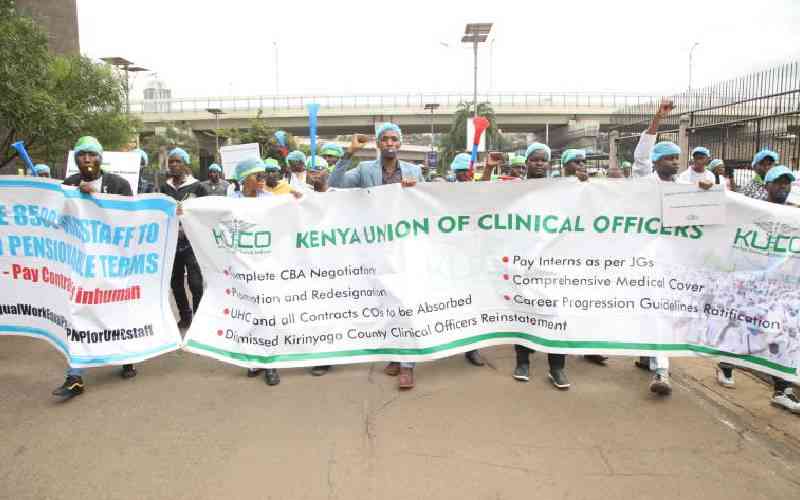×
The Standard e-Paper
Home To Bold Columnists

The healthcare crisis in Kenya has created a dire situation for ordinary citizens that cannot be ignored any longer. Countless Kenyans have been left stranded without access to essential medical care because of the ongoing doctors' and clinical officers' strikes.
Despite several negotiations between the doctors' union and the government, all have been futile, leaving vulnerable communities in despair and suffering.